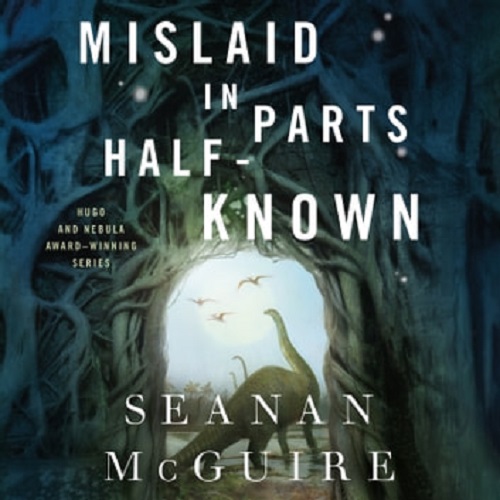 Mislaid in Parts Half-Known (Wayward Children, #9) by Seanan McGuire
Mislaid in Parts Half-Known (Wayward Children, #9) by Seanan McGuire Narrator: Jesse Vilinsky
Format: audiobook, eARC
Source: supplied by publisher via Edelweiss, supplied by publisher via NetGalley
Formats available: hardcover, ebook, audiobook
Genres: fantasy, portal fantasy, urban fantasy, young adult
Series: Wayward Children #9
Pages: 160
Length: 4 hours and 40 minutes
Published by Macmillan Audio, Tordotcom on January 9, 2024
Purchasing Info: Author's Website, Publisher's Website, Amazon, Barnes & Noble, Kobo, Bookshop.org, Better World Books
Goodreads
Dinosaurs and portals, and a girl who can find both in the latest book in the Hugo and Nebula Award-Winning series.
Antsy is the latest student to pass through the doors at Eleanor West's School for Wayward Children.
When her fellow students realize that Antsy's talent for finding absolutely anything may extend to doors, she's forced to flee in the company of a small group of friends, looking for a way back to the Shop Where the Lost Things Go to be sure that Vineta and Hudson are keeping their promise.
Along the way, temptations are dangled, decisions are reinforced, and a departure to a world populated by dinosaurs brings untold dangers and one or two other surprises!
A story that reminds us that finding what you want doesn't always mean finding what you need.
My Review:
This book and certainly the Wayward Children series as a whole, feels like the perfect story to start off the new year.
Why?
Because new years are all about doors closing, doors opening, and taking the opportunity to start with a fresh slate and reinvent yourself and how you see the world, and that’s a big part of what the Wayward Children series is all about.
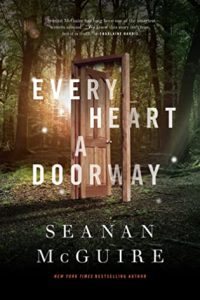 Beginning with Every Heart a Doorway, the series is a metaphor for finding the place where you belong, the place that your heart calls home, and then getting tossed out of that personal Eden and being forced to make a whole new start on a whole new you – whether you want to or not.
Beginning with Every Heart a Doorway, the series is a metaphor for finding the place where you belong, the place that your heart calls home, and then getting tossed out of that personal Eden and being forced to make a whole new start on a whole new you – whether you want to or not.
Especially when you don’t. And when you no longer belong in the place you originally came from. You really can’t go home again because it’s not the place you remember and the people who once loved you no longer see you as theirs.
The story in this particular entry in the series picks up where the previous book, Lost in the Moment and Found, left off. Antsy has returned to Earth from the Shop Where the Lost Things Go, nine-years-old in a sixteen-year-old body, still angry at the shopkeeper Vineta and terrified that someone will figure out her secret.
Which they do. Both of her secrets. Her friends figure out that she isn’t nearly as mature as her body appears to be. Her enemies figure out that Antsy left the shop with a talent for finding anything – including other people’s doors – and have absolutely no care in the world about what the doors cost and zero intention to pay for it themselves because that’s what other people are for.
But Antsy can find anything when she needs it badly enough. Including a way out when she and her friends are cornered by the magically mesmerizing head mean girl and her clique of magically reinforced sycophants.
Leading Antsy and company to break one of the School’s most sacred rules. They think they’re hunting for an escape route, but what they’re really searching for is the place that at least one of their hearts calls home. In other words, they’re going on a quest.
A quest to find the one place that Antsy literally can’t afford to return to. Unless she takes it over – for herself.
Escape Rating A: Before I get started on the book, I want to mention that I listened to this one in audio – and that feels like a bit of an afterthought, which is rare. The book was excellent, as you can tell from the rating. But this is a case where the fact I was listening to it instead of reading it didn’t impinge on my consciousness at all. The experience felt seamless, as though the narrator was downloading the story directly into my brain. Which was VERY much unlike Under the Smokestrewn Sky, where the narration detracted from the story.
I said at the top that this book was perfectly themed for the start of the year, because of its fundamental metaphor about doors opening and reinvention that just dovetails perfectly with the thoughts and feelings we all have about the old year ending and the new year beginning.
Ironically, however, this entry in the series is much more about closing doors than it is about opening them, although it definitely carries the theme of self-reflection and reinvention and finally being sure of who one needs to be in the world and their life in it.
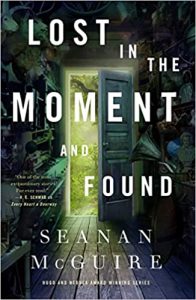 At first, the story feels very much a part of the YA genre which the series is often pigeonholed into, as out-of-place, out-of-time Antsy is being persecuted by a powerful clique of ‘mean girls’. It’s only when she starts revealing herself for who she really is and what she really can do that we start to see her as considerably more capable and mature than either her nine-year-old head or her sixteen-year-old body would be capable of.
At first, the story feels very much a part of the YA genre which the series is often pigeonholed into, as out-of-place, out-of-time Antsy is being persecuted by a powerful clique of ‘mean girls’. It’s only when she starts revealing herself for who she really is and what she really can do that we start to see her as considerably more capable and mature than either her nine-year-old head or her sixteen-year-old body would be capable of.
Because her moral compass is firmly pointed towards doing the right thing, and she’s very sure indeed what that right thing is – at least in the context of the Shop, its doors, its costs, and its purpose. It wants her back, and she wants to go, but it’s more than that. It’s that she’s ready to do the necessary for the shop and for herself. She’s grown up in the ways that matter, she just has to recognize that fact.
She has to ‘Be Sure’, and by the story’s end, she finally is.
But along Antsy’s journey we see other doors that open and close for other ‘wayward children’. Discovering that her best friend is happy and somewhat safe in the world her own heart calls home, even if it’s a world that none of the rest of the travelers would be remotely interested in staying, gives her strength and much-needed closure.
However, the series as a whole feels like it’s winding down, as it should. The young children in the first part of the series are now teenagers and their life paths are reaching out for them. One way or another, their doors are opening, giving them one last chance to be sure enough to go home.
What got me about this entry in the series was the way that the doors and the futures they represent felt like metaphors for life, for making or finding a life filled with magic and purpose. It doesn’t HAVE to be the magic of the doors – because happiness is a magic all its own. All one has to do is find it. And BE SURE.
I’m sure I’ll be back for the next book in this series, currently untitled but scheduled to be published this time next year.

 The Butterfly Collector by
The Butterfly Collector by  Escape Rating B: I have to say that I ended up with mixed feelings all over the place while listening to and reading The Butterfly Collector. In the end, the 1922 story carried me through, but it’s the 1868 story that held the most bone-chilling horrors. Real-life horror, like revenge, is compellingly served ice cold – and the horrors of this story, based on real historical events – had plenty of chills to deliver.
Escape Rating B: I have to say that I ended up with mixed feelings all over the place while listening to and reading The Butterfly Collector. In the end, the 1922 story carried me through, but it’s the 1868 story that held the most bone-chilling horrors. Real-life horror, like revenge, is compellingly served ice cold – and the horrors of this story, based on real historical events – had plenty of chills to deliver.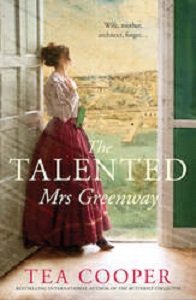 Once I switched to text it all got better, and I was able to finally be captured by the increasingly frenetic pace of the mystery of it all. Not just a terrible crime, but decades of a profitable series of terrible crimes come to light and sticks a knife into Verity’s heart AND her perceptions of her family’s history in a way that makes the whole story both sing and sting at the same time.
Once I switched to text it all got better, and I was able to finally be captured by the increasingly frenetic pace of the mystery of it all. Not just a terrible crime, but decades of a profitable series of terrible crimes come to light and sticks a knife into Verity’s heart AND her perceptions of her family’s history in a way that makes the whole story both sing and sting at the same time.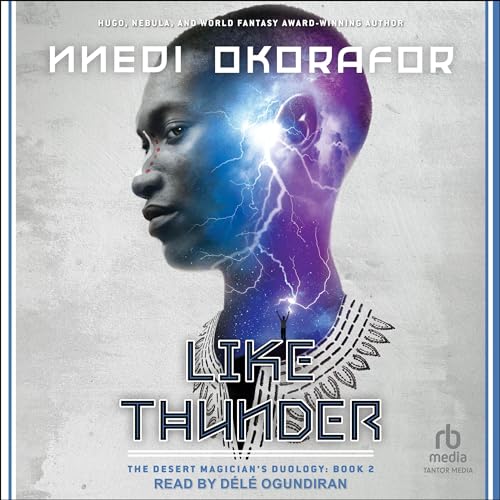 Like Thunder (The Desert Magician's Duology #2) by
Like Thunder (The Desert Magician's Duology #2) by 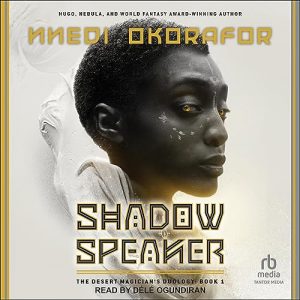 Escape Rating A-: As much as I loved
Escape Rating A-: As much as I loved 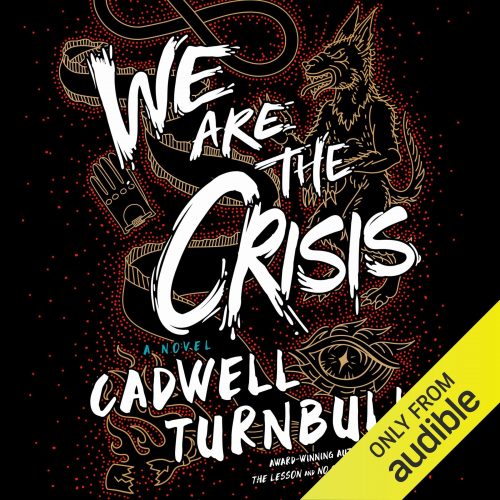 We Are the Crisis (Convergence Saga #2) by
We Are the Crisis (Convergence Saga #2) by 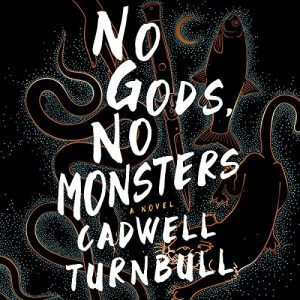 Escape Rating B+: The story so far, with the separation of its many and various threads and its detachment from its characters, reads like a kind of fever dream. Or at least it feels that way when read by its marvelous narrator Dion Graham.
Escape Rating B+: The story so far, with the separation of its many and various threads and its detachment from its characters, reads like a kind of fever dream. Or at least it feels that way when read by its marvelous narrator Dion Graham.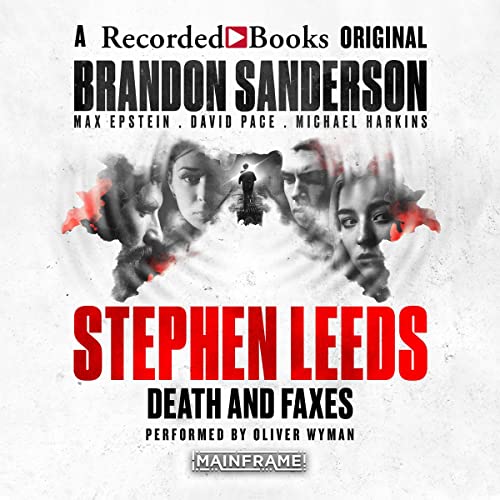 Stephen Leeds: Death and Faxes by
Stephen Leeds: Death and Faxes by 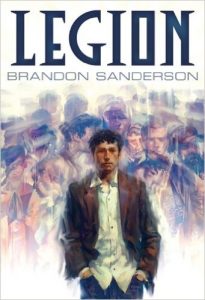 The case that finds Stephen Leeds in this audio-only entry in the
The case that finds Stephen Leeds in this audio-only entry in the 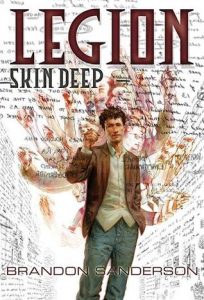 It’s only the beginning, because Stephen is determined to get to the bottom of this case, following a trail of victims around the country even as the structure of his increasingly fragile mental landscape falls into tatters.
It’s only the beginning, because Stephen is determined to get to the bottom of this case, following a trail of victims around the country even as the structure of his increasingly fragile mental landscape falls into tatters.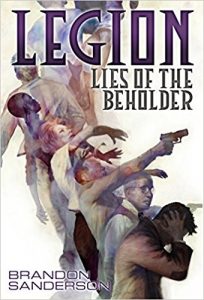 So I wasn’t expecting to see Stephen Leeds again when I found this audio-only entry in the series. An entry that doesn’t occur AFTER
So I wasn’t expecting to see Stephen Leeds again when I found this audio-only entry in the series. An entry that doesn’t occur AFTER 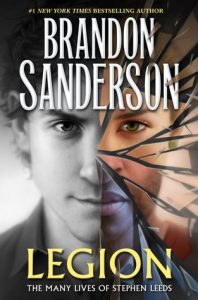 So, a whole lot of mixed feelings, leaving me with the conclusion that fans of the series, like me, will probably enjoy the trip down memory lane to visit Stephen and his aspects again. (However, the comment in the blurb about Stephen being perfectly sane but his hallucinations all being quite mad isn’t merely a bit off – it’s completely wrong. A fair number of his aspects are quirky and/or eccentric, but none of them are actually ‘mad’, and neither is Stephen Leeds. His coping mechanism is just eccentric and sometimes expensive, but works for him and does no harm to anyone else. There are worse ways to get by.)
So, a whole lot of mixed feelings, leaving me with the conclusion that fans of the series, like me, will probably enjoy the trip down memory lane to visit Stephen and his aspects again. (However, the comment in the blurb about Stephen being perfectly sane but his hallucinations all being quite mad isn’t merely a bit off – it’s completely wrong. A fair number of his aspects are quirky and/or eccentric, but none of them are actually ‘mad’, and neither is Stephen Leeds. His coping mechanism is just eccentric and sometimes expensive, but works for him and does no harm to anyone else. There are worse ways to get by.)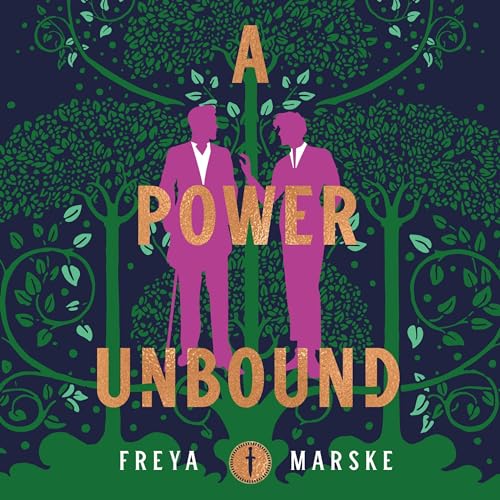 A Power Unbound (The Last Binding, #3) by
A Power Unbound (The Last Binding, #3) by 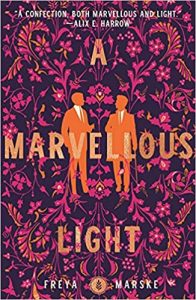 This series,
This series, 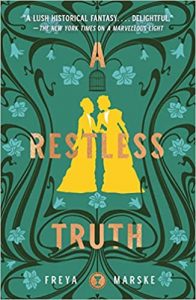 But the balancing act between the romance and the magical mystery tour started to tip in the second book in the series. I did enjoy
But the balancing act between the romance and the magical mystery tour started to tip in the second book in the series. I did enjoy 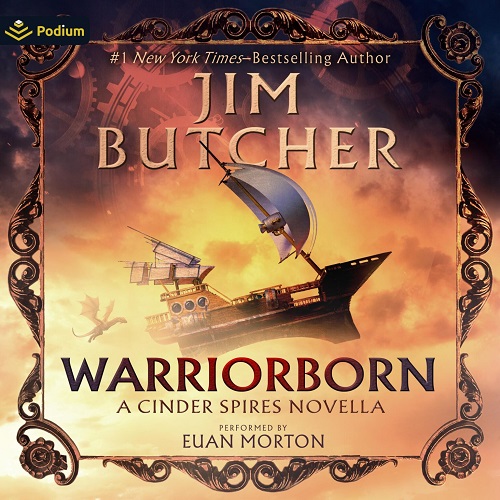 Warriorborn: A Cinder Spires Novella (The Cinder Spires) by
Warriorborn: A Cinder Spires Novella (The Cinder Spires) by 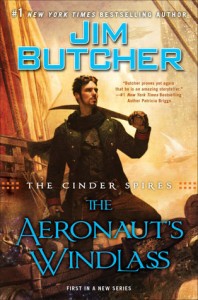 Warriorborn is the perfect method for readers who remember the first book in the
Warriorborn is the perfect method for readers who remember the first book in the 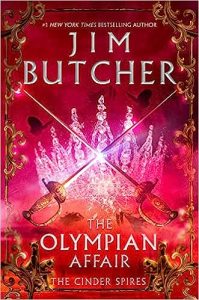 Escape Rating A-: I picked this up this week because I was having a “flail and bail” kind of day. Post Halloween, I was horror’ed out. Even at the horror-adjacency level I’m more comfortable in. I hit the “I can’t evens” and went looking for something a bit more comforting. This would not, I admit, normally have filled that bill, but the NetGalley app was having a flail of its own which is now fixed, but at the time was knocking me out of the book I’m listening to.
Escape Rating A-: I picked this up this week because I was having a “flail and bail” kind of day. Post Halloween, I was horror’ed out. Even at the horror-adjacency level I’m more comfortable in. I hit the “I can’t evens” and went looking for something a bit more comforting. This would not, I admit, normally have filled that bill, but the NetGalley app was having a flail of its own which is now fixed, but at the time was knocking me out of the book I’m listening to.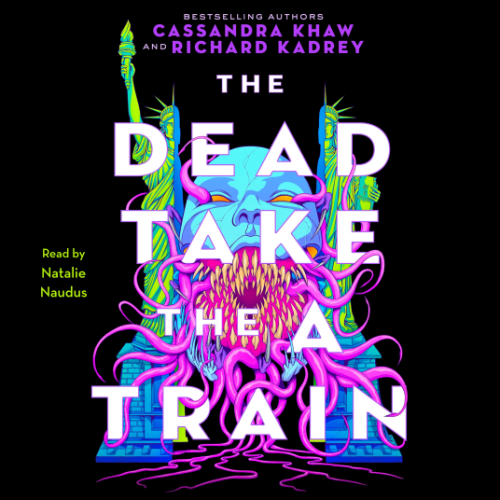 The Dead Take the A Train (Carrion City, #1) by
The Dead Take the A Train (Carrion City, #1) by 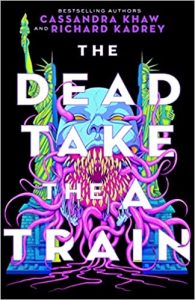 Escape Rating B+: First and most importantly, this is your trigger warning that The Dead Take the A Train is a bloody, gory, gruesome reminder that urban fantasy as a genre is the uncanny child of mystery and horror, much like the uncanny babies being born in yesterday’s book,
Escape Rating B+: First and most importantly, this is your trigger warning that The Dead Take the A Train is a bloody, gory, gruesome reminder that urban fantasy as a genre is the uncanny child of mystery and horror, much like the uncanny babies being born in yesterday’s book, 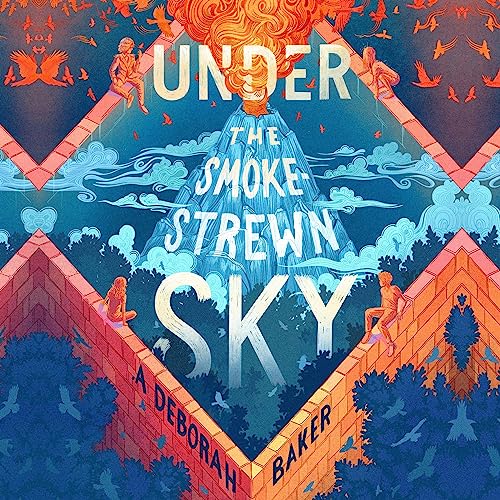 Under the Smokestrewn Sky (The Up-and-Under, #4) by
Under the Smokestrewn Sky (The Up-and-Under, #4) by 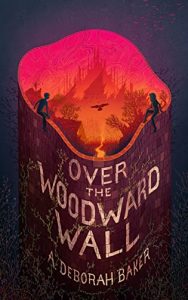 We have come, at last, to the final chapter of Zib and Avery’s journey into and hopefully through the Up-and-Under. It’s a journey that has taken them from their ordinary and mundane homes – even if Zib’s and Avery’s definitions of ordinary and mundane are entirely opposite to one another – and sent them along the Improbable Road on an equally improbable journey through every single one of the elemental kingdoms in the Up-and-Under.
We have come, at last, to the final chapter of Zib and Avery’s journey into and hopefully through the Up-and-Under. It’s a journey that has taken them from their ordinary and mundane homes – even if Zib’s and Avery’s definitions of ordinary and mundane are entirely opposite to one another – and sent them along the Improbable Road on an equally improbable journey through every single one of the elemental kingdoms in the Up-and-Under.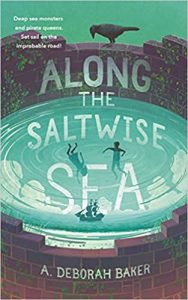 It’s Avery’s bit of stubborn backsliding that pushes the story off the Improbable Road and into their very last set of adventures in the Up-and-Under. Adventures that will have a much bigger impact than any of them imagined when they began.
It’s Avery’s bit of stubborn backsliding that pushes the story off the Improbable Road and into their very last set of adventures in the Up-and-Under. Adventures that will have a much bigger impact than any of them imagined when they began.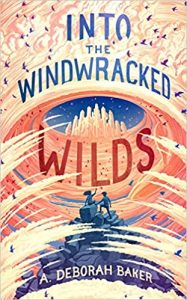 No matter the age of the protagonists, this has been the story of an epic fantasy quest that combines bits of Narnia with elements of Wonderland. Zib and Avery have been brought to the Up-and-Under to fix what’s gone wrong there, while for Zib and Avery the quest is to find their way home. It’s not going to end in a big battle between good and evil, because those concepts aren’t exactly the same in the Up-an-Under as they are back home. Instead, it’s a quest to put the out-of-balance back into balance – even if some of what they see looks like evil to Zib and Avery’s – especially Avery’s – eyes.
No matter the age of the protagonists, this has been the story of an epic fantasy quest that combines bits of Narnia with elements of Wonderland. Zib and Avery have been brought to the Up-and-Under to fix what’s gone wrong there, while for Zib and Avery the quest is to find their way home. It’s not going to end in a big battle between good and evil, because those concepts aren’t exactly the same in the Up-an-Under as they are back home. Instead, it’s a quest to put the out-of-balance back into balance – even if some of what they see looks like evil to Zib and Avery’s – especially Avery’s – eyes.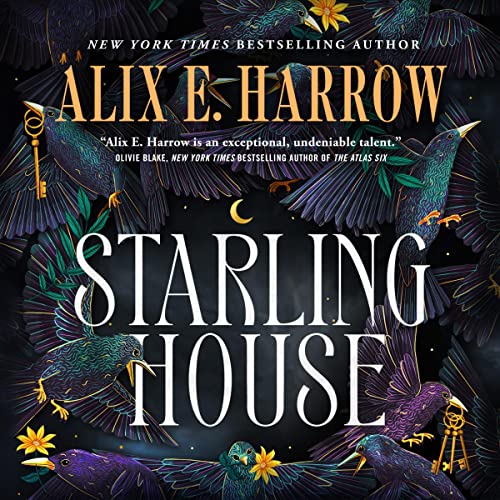 Starling House by
Starling House by 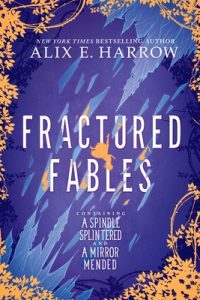 I took this journey in audio, with Natalie Naudus as the most excellent narrator. As a narrator, she seems to specialize in heroines who think that everything is all their fault and that they have to do it all alone, and her voice made me think of her other characters, Emiko Soong in
I took this journey in audio, with Natalie Naudus as the most excellent narrator. As a narrator, she seems to specialize in heroines who think that everything is all their fault and that they have to do it all alone, and her voice made me think of her other characters, Emiko Soong in